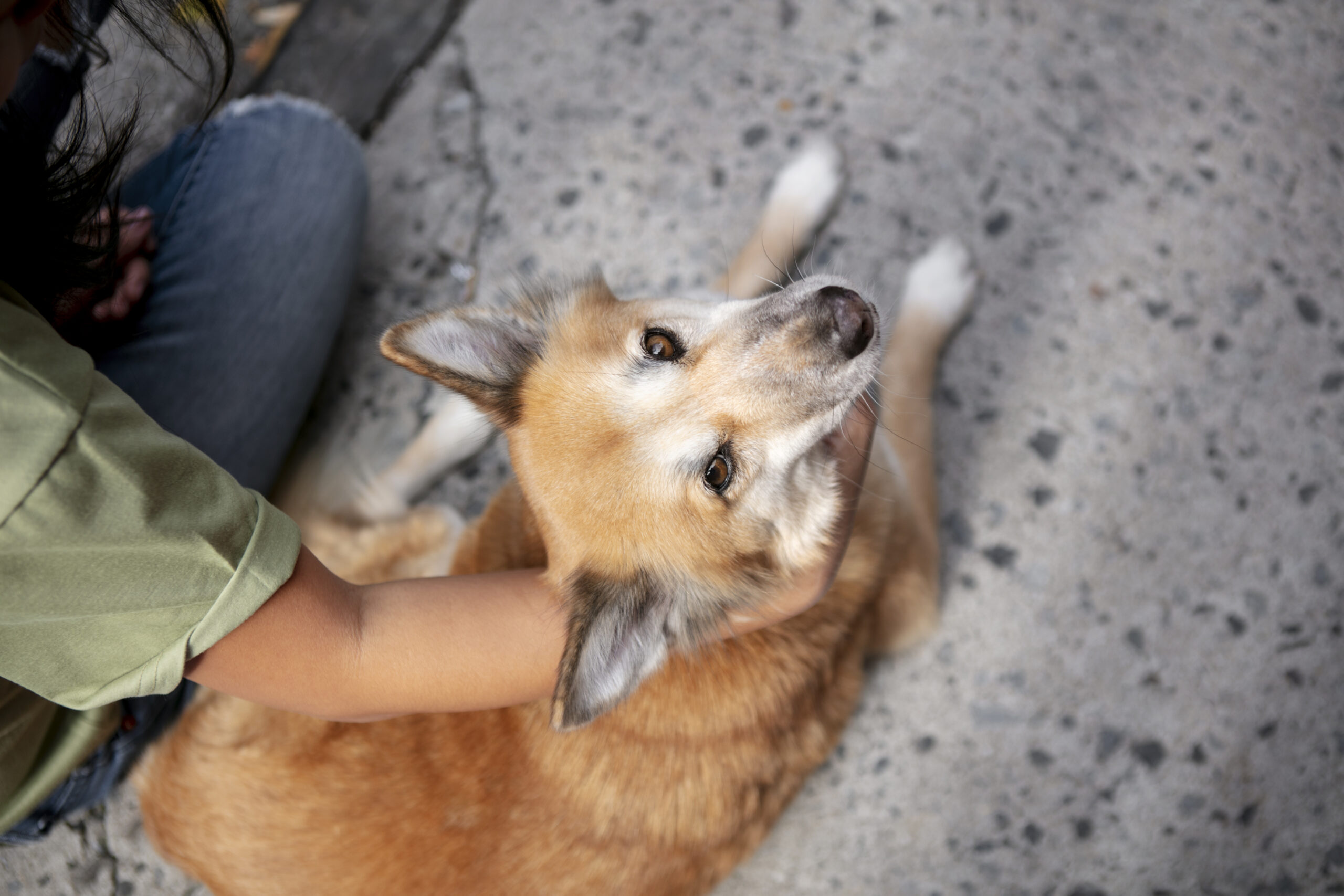You probably already noticed your dog shaking for no apparent reason. This small frenetic movement can be worrying for dog owners. Why does your four-legged companion manifest this behavior? Causes may vary, ranging from simple cold chills to more serious medical problems. In this article, we will explore the various reasons that could explain why a dog often trembles and how you can help your faithful friend overcome these difficult times. Prepare to discover the mysteries behind the tremor in our dear animals!
Medical reasons why a dog can tremble
Tremors in a dog can sometimes be a sign of a medical condition. Attention to these signals is essential to their well-being.
Neurological problems
Neurological problems in dogs can be a source of great concern. These conditions affect the central or peripheral nervous system and may cause significant tremors.
Among the neurological conditions, Parkinson's disease is one of the most recognized. Although rare in animals, its symptoms include uncontrolled tremors. Other disorders such as epilepsy also cause convulsions that occur through muscle shaking.
Brain damage due to trauma or infection is also responsible for this phenomenon. An accident dog may show these signs after being injured in the head.
Degenerative diseases such as degenerative myelopathy gradually lead to loss of motor control. This can lead your companion to show strange behaviors, including tremor.
It is essential to observe any changes in your dog's behaviour and to act quickly to consult a veterinarian if you notice these persistent symptoms.
Heart disease
Heart disease can affect our four-legged companions, just as it affects humans. When a dog's heart does not work properly, it can cause various symptoms, including tremors.
These muscle shakes are often the sign that the body struggles to compensate for a lack of blood circulation or heart failure. Sick dogs can also experience rapid and superficial breathing due to the extra effort required by their weakened heart.
Some dogs are more likely to develop these problems according to their race or age. For example, small and medium-sized races tend to be more vulnerable to degenerative heart disease.
If you notice that your dog is shaking frequently for no apparent reason, it is essential to talk to your veterinarian. An in-depth assessment will identify whether underlying heart problems may be responsible for your partner's worried behavior.
Early detection is crucial to ensure the health and future well-being of your beloved animal.
Metabolic disorders
Metabolic disorders in dogs can significantly affect their health. Among these problems, hypoglycaemia is common and may cause tremor. Low blood sugar leads to a loss of energy, which is often caused by shaking.
Hyperthyroidism is another disorder to consider. It results from excessive production of thyroid hormones, which disrupts the dog's metabolism. This condition can also cause involuntary tremors.
Liver failure is also a major concern. When the liver does not function properly, it affects the body's ability to metabolize nutrients and eliminate toxins. Symptoms may include muscle agitation, visible as tremors.
Nor should dehydration or electrolyte imbalance be neglected, which can generate similar behavior in our dog companions. Each situation must be carefully assessed to ensure the well-being of the dog suffering from such metabolic disorders.
Stress and anxiety in dogs
Stress and anxiety are common realities in our four-legged companions. Several factors can contribute to these emotions, whether it is a change in their environment or excessive activity.
A move, the arrival of a new pet or even loud noises such as thunderstorms can cause tremors. Dogs react differently to external stimuli, some being more sensitive than others.
The prolonged absence of their masters can also create a sense of insecurity. This often manifests itself in agitated behaviour and, of course, tremors.
It is essential that recognizing signs of stress in your dog to provide the necessary support. Creating a quiet space where it can withdraw helps a lot. Physical comfort also plays its part: a soft blanket or its favorite toy can ease its anxiety.
Techniques like canine meditation even exist to help calm their tormented minds! Engaging interactive games could also divert their attention while strengthening your links together.
Cold and fever as possible causes of tremor
Dogs, like humans, can feel cold effects. When the temperature drops, some dogs tremble to warm up. This phenomenon is a natural reaction of their bodies to an icy environment. If you notice that your companion shivers when it's cool outside, it may be time to invest in a coat or blanket.
On the other hand, fever is often a sign of an infection or underlying disease. A dog showing signs of excessive heat and shaking may need rapid veterinary attention. Fever usually causes dehydration and general malaise in animals.
It is essential to monitor other symptoms associated with these tremors, such as loss of appetite, lethargy or vomiting. These clues can help determine if your dog simply wants heat or if it actually suffers from something more serious.
Remember that each animal is unique and that its cold tolerance may vary depending on its breed and age.
How can you help your dog feel better?
To help your dog feel better, start by observing his behavior. Note the moments when it trembles and what might trigger this reaction. This will allow you to better understand his needs.
Create a calm and secure environment. A cozy space with cushions or a blanket can make all the difference. Dogs like to feel protected.
Do not hesitate to consult a veterinarian if the behaviour persists. A professional will assess whether the situation requires specific treatments or whether it is simply a passenger stress.
Regular exercise is also essential for their mental and physical well-being. Daily walks can reduce anxiety and promote a better mood.
Spend quality time with him. Whether it's interactive games or hugs, strengthening your link will help your dog relax. Your affection is a real cure for animal stress.
Conclusion
It is essential to understand that tremors in a dog can have several origins. Whether it is due to medical problems, stress or simply too cool room temperature, each situation requires special attention. If your four-legged companion starts shaking frequently, do not hesitate to consult a veterinarian to rule out any serious conditions. Always keep an eye on his behaviour and general well-being. Providing the right support and love he needs can make all the difference in his quality of life. Take care of him and be vigilant about signs that might indicate that he is not well.
Photo credit: https://www.freepik.com/free-photo/close-up-pet-lifestyle_20519419.htm#fromView=search&page=4&position=30&uuid=acb2513e-0f1e-4b09-ad2a-b625dc7f81d1





